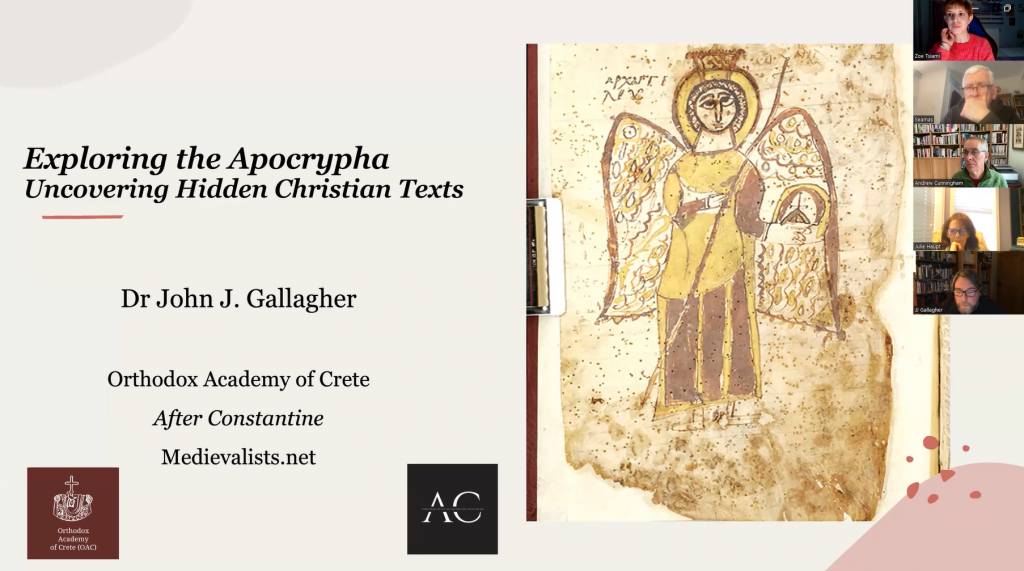Online workshop – Exploring the Apocrypha: Discovering hidden Christian texts


The international online Workshop, based on the subject of research on apocryphal books and the discovery of new Christian texts (Exploring the Apocrypha: Discovering Hidden Christian Texts), which took place on Sunday, 18 February 2004, was completed with great success. The purpose of the Workshop was to get to know the apocryphal Christian texts, their social and religious interpretation, the presentation of the words that were excluded from the Bible and their interactive study.
The Workshop was organised by the Orthodox Academy of Crete (OAK), the International Network of Medieval Studies Medievalists.net and the Academic Journal After Constantine: Stories from the Late Antiquity and Early Byzantine Era, which is hosted on the Orthodox Academy of Crete website. The participation was quite large and the interest greater.
The presenters of the Workshop were Dr. John J. Gallagher (University of St. Andrew’s) and Ms. Zoe Tsiami (University of Thessaly), who conveyed the greeting of Dr. Konstantinos Zorbas, Director General of the Orthodox Academy of Crete. Professor Dr. John J. Gallagher gave an introduction to the subject (what are apocryphal texts, why were they excluded from the Old and New Testaments, what were these texts and their historical background) after which a discussion followed with the participants, where they presented their point of view on the above-mentioned topic, posing appropriate and varied questions.
Afterwards, Ms. Zoe Tsiami held, starting with the first presentation, an interactive discussion, on the apocrypha acts of Paul and Thecla, part of a series of projects concerning the activity and adventures of the Apostle Paul. A work of early Christian literature, it is written simply and clearly, like the ancient novels, full of adventures, miracles, encounters, recognitions, with a didactic mood and with a clear intention to show the public of his time a female role model worthy of admiration and imitation. Participants were asked to identify the historical elements of the text and to describe aspects of everyday life and early Christian society that the apocryphal narratives provide.
The Workshop concluded with a thorough discussion and evaluation of the teaching and the teachers, while there was interest in similar future workshops to be organised.




